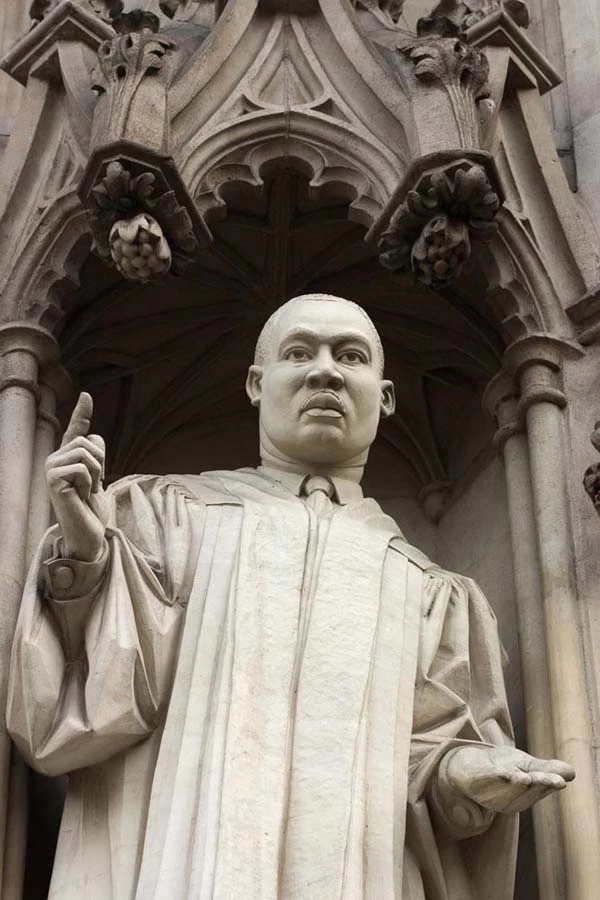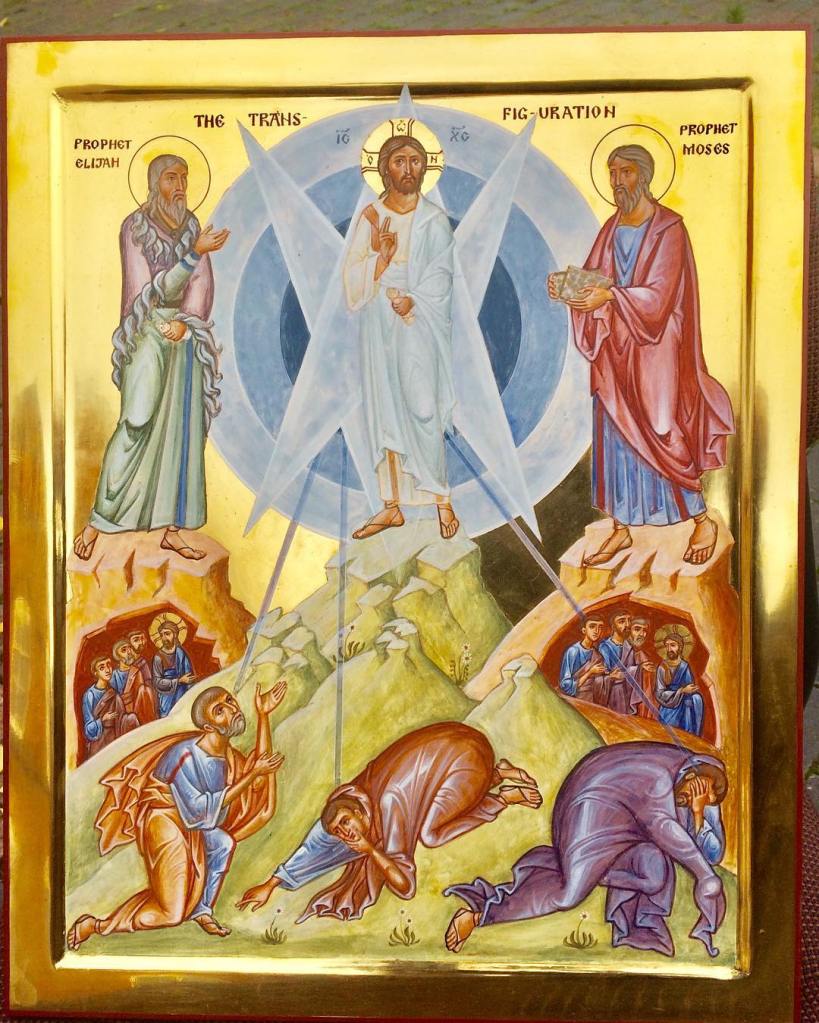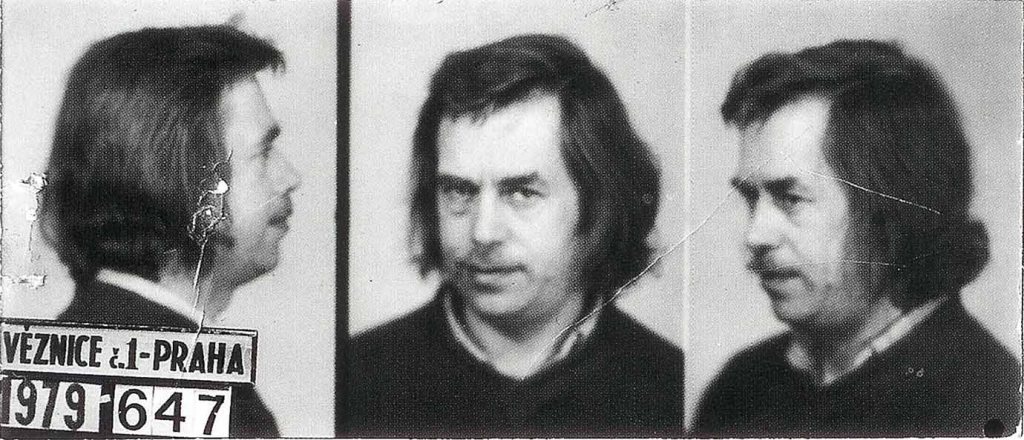A sermon preached on The Sunday Next Before Lent,
at The Anglican Church of St. Thomas the Apostle, Kefalas, Crete,
11 February 2024.
The readings were 2 Kings 2:1-12, Psalm 50:1-6, 2 Corinthians 4:3-6 and Mark 9:2-9
The Transfigured Trio
What do Elijah, Moses, and Jesus have in common?
In addition to being Israelites and prophets, and being present in the glory of the Transfiguration, they had this in common: they all experienced oppression by and persecution by the powers of the time.
- Moses, even in birth, was persecuted, because he was supposed to be put to death in infancy. He fled into exile in Sinai after killing an overseer who was abusing an Israelite slave. He was then sent by God back to Egypt, to Pharaoh, King of Egypt, to demand that he free the people of Israel from slavery. He relented only after the ten plagues, and even then, after letting them go, he changed his mind and pursued them with chariots and horses. Moses also suffered for the failings of the people of Israel in the desert, and he himself never entered the Promised Land, but only saw it from a distance.
- Elijah, in the 9th Century before Jesus, spoke truth to power. He lived in the northern kingdom of Israel and called to account King Ahab and his wife Queen Jezebel, and the way they followed the Canaanite god Baal instead of the Israelite god Yahweh. Elijah flees from Ahab to Beersheba in southern Judah, and prays for death, but an angel tells him to eat and drink, because he has work to do. Later he challenges Ahab for having committed murder to get Naboth’s vineyard.
- Jesus, of course, challenged both Roman power and their collaborators among the Jewish leadership. He simultaneously called the people to repentance and a higher righteousness while at the same time proclaimed God’s mercy on Israel. To the vast majority of Israel and beyond Jesus’s words were indeed good news. To the Romans and their friends among the powerful priests and teachers in Jerusalem, it was judgement. And so he, too, was persecuted. In his case, his obedience to his father was such that he suffered death, even death on the cross.
So what kind of glory is being shown in the Transfiguration? It is described as a “transfiguration”, and in the Greek the word is Μεταμόρφωση, or metamorphosis. May I suggest to you that in Christ, as in Moses and Elijah, we see revealed the true nature of glory – not power over overs, not a kind of raw unrestrained dominion, but rather the paradoxical power of those who, in following the ways of God, suffer for it. It is the power of those who are powerless, or who advocate for the powerless – the widows and orphans, the enslaved, those who are murdered for their property, those possessed by what appear to be demons, the strangers in our midst, those marginalized by illness and death, the poor who are still taxed by the rich and violent, those imposing the false ideology of Empire and Emperor.
Modern Transfigurations

This is still relevant today. Many people suffer, and many of them have suffered unjustly. What is one to do with such unearned suffering? Some people just try to avoid it, or deaden themselves to it through alcohol, drugs, or other addictive things. However, some people have decided that if they are going to suffer, they should try and make it meaningful.
This is where two heroes of the past century illuminate this. Martin Luther King famously used civil disobedience as a means of showing up the violent structures of the United States in the 1950s and ‘60s. He thought this through carefully, drawing not only on the tactics of Mohandas Gandhi, but also the liberal protestant theology of the first half of the twentieth century, and the theology of the historic Black churches, best found in their music and preaching. As a Black man in the southern US he knew that he would be discriminated and abused as a matter of course, and he resolved to make use of that to change things.
Another man who understood this is Vaclav Havel, the Czech playwright and dissident, who challenged the Soviet-era oppression in Czechoslovakia. He was repeatedly imprisoned for not falling in line and being silent. In 1978 he wrote the extended paper, “The Power of the Powerless” which indicated just how ordinary people can dethrone the high and mighty in the conceits of their hearts and send them empty away. The paper, passed around in mimeographed copies and translated into various East Bloc languages, was considered a theoretical basis for the Solidarity movement in Poland.
Ultimately both King and Havel succeeded. The Voting Rights Act was passed in the mid-1960s, and a generation later a Black man was in the White House as President. Martin Luther King received glory in the form of the Nobel Peace Prize, and his birthday is today a national celebration in the USA. His life was cut short by his assignation, but his campaign for civil rights and justice continue. Likewise, after the miraculous, peaceful fall of communism in the Soviet Bloc, Havel was unanimously elected President of Czechoslovakia by the Federal Assembly, and then after the dissolution of the country, became President of the Czech Republic for two terms. His awards are too many to recount, but among others he was given a knighthood in the Order of the Bath and the Order of Canada.
Both segregation in the United States and communism in eastern Europe seemed permanent, and many people could imagine that only violent revolution would bring about change. And yet, as we know, these apparently marginal figures led movements of the seemingly powerless to transform society. In the same way Moses sought to transform the situation of the Israelites, Elijah to reorient the northern kingdom of Israel, and Jesus the hearts of Jews and Gentiles. They each suffered for it, but their suffering led to change into something better. If Jesus were to be transfigured today, perhaps it would be King and Havel meeting him on the mountain top.
The power of the powerless is the glory of God. It is what is revealed in the Transfiguration. As we enter into Lent, how shall we be transfigured? Where will we find our power, our meaning, and our glory? As the collect for today prays:
Almighty Father,
whose Son was revealed in majesty
before he suffered death upon the cross:
give us grace to perceive his glory,
that we may be strengthened to suffer with him
and be changed into his likeness, from glory to glory;
who is alive and reigns with you,
in the unity of the Holy Spirit,
one God, now and for ever. Amen


